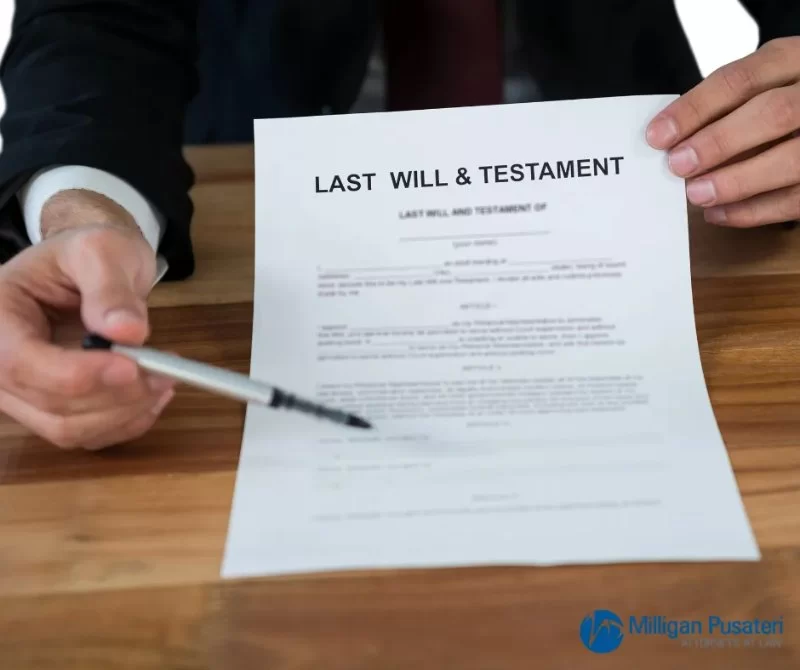- understanding-the-basics-of-contesting-a-will
- common-legal-grounds-for-challenging-a-will
- how-to-contest-a-will-with-legal-help
- real-case-how-legal-guidance-changed-the-outcome
- choosing-the-right-lawyer-for-will-contestation
- important-considerations-and-potential-risks
1. Understanding the Basics of Contesting a Will
When a loved one passes away, their will can be a final expression of their wishes—or a point of deep confusion and conflict. Disputes over inheritance are emotionally charged and legally complex, which is why understanding how to contest a will with legal help is essential for those who feel something isn't right. Contesting a will isn’t about greed—it’s about fairness, and in some cases, exposing manipulation or fraud.
A will contest usually takes place in probate court and involves a beneficiary, or potential beneficiary, challenging the validity of the will. But these aren’t cases you can walk into unprepared. You’ll need a solid legal foundation, emotional clarity, and a reliable legal ally.
2. Common Legal Grounds for Challenging a Will
2.1. Lack of Testamentary Capacity
This refers to the testator’s mental state when the will was created. If they weren’t of sound mind—due to dementia, illness, or cognitive decline—the will may not stand up in court. Medical records and witness statements are key here.
2.2. Undue Influence
Was the testator coerced by someone they trusted—like a caregiver or relative—into making decisions they wouldn’t have made otherwise? Proving undue influence often requires circumstantial evidence and expert testimony.
2.3. Fraud or Forgery
A forged signature or documents presented as the “latest” will without proper validation can be contested through forensic document analysis and legal procedures. Fraud is serious and demands immediate legal attention.
2.4. Improper Execution
Each state has formal requirements for wills—such as needing two witnesses or notarization. If those rules weren’t followed, even a seemingly valid will can be deemed invalid.
3. How to Contest a Will with Legal Help
3.1. Consult a Probate Attorney
The first and most critical step is finding a skilled probate or estate litigation lawyer. Contesting a will involves tight deadlines, technical filings, and courtroom strategy. Attempting it without legal help can jeopardize your case. At Fred Miller Lawyer, clients receive direct, compassionate guidance tailored to their unique situations.
3.2. Gather Key Evidence
Your attorney will help collect medical records, prior versions of the will, communication logs, financial documents, and witness testimony. These pieces build the foundation of your case.
3.3. File a Formal Objection
Your legal team will draft and submit a formal objection to the probate court, triggering a legal review of the will. This process may involve discovery, depositions, and pre-trial motions.
3.4. Mediation vs. Litigation
Some disputes are resolved through mediation to avoid costly litigation. Others go to trial, especially if the estate is large or the objection is contested by other beneficiaries. Your lawyer will assess what’s best for you.
4. Real Case: How Legal Guidance Changed the Outcome
Consider the story of Emily, a 34-year-old teacher who learned after her father’s death that his latest will left everything to his much younger second wife, cutting Emily out completely. The will had been changed just weeks before his death—when he was battling terminal illness and on heavy medication.
Emily contacted Fred Miller Lawyer for help. The legal team quickly obtained medical records, showed a decline in cognitive ability, and found suspicious communication between the caregiver and the new beneficiary. Through expert testimony and strategic litigation, the will was overturned, and Emily was restored as an heir.
Without professional legal help, Emily would have had little chance of success. Her case underscores the power of a focused legal team in estate conflicts.
5. Choosing the Right Lawyer for Will Contestation
5.1. Experience in Estate Litigation
Not all lawyers specialize in will disputes. Look for someone with direct experience in probate litigation, not just estate planning. They should know how to handle aggressive defense strategies and high-emotion cases.
5.2. Client-Centered Communication
You need someone who listens, explains clearly, and responds promptly. Contesting a will is a deeply personal process—your lawyer should treat it with the respect and sensitivity it deserves.
5.3. Strong Reputation and Results
Legal outcomes aren’t guaranteed, but a proven track record speaks volumes. Firms like Fred Miller Lawyer often provide case studies and testimonials to show how they’ve successfully handled similar disputes.
6. Important Considerations and Potential Risks
6.1. Family Conflict and Emotional Tolls
Will contests can strain family relationships. Be prepared for tough conversations and emotional fallout. A lawyer can often help mediate between parties or direct communications to avoid further tension.
6.2. Cost of Legal Action
Some attorneys work on a contingency basis, while others charge hourly. Discuss fees upfront and ask about possible outcomes. Weigh the cost of action against the value of the estate and your rightful claim.
6.3. Time Limits and Deadlines
You may only have a few months from the time the will enters probate to file an objection. Missing this deadline can bar your claim forever. That's why contacting a legal expert like Fred Miller Lawyer early is so critical.
Contesting a will can be daunting—but with the right legal help, you stand a fair chance at justice. Whether you're seeking clarity, fairness, or to protect a loved one’s true wishes, experienced guidance makes all the difference.


 alex borell
alex borell craig hansen lawyer
craig hansen lawyer eaker perez law
eaker perez law la century law reviews
la century law reviews mcintosh law firm
mcintosh law firm maggiano's hackensack nj 07601
maggiano's hackensack nj 07601